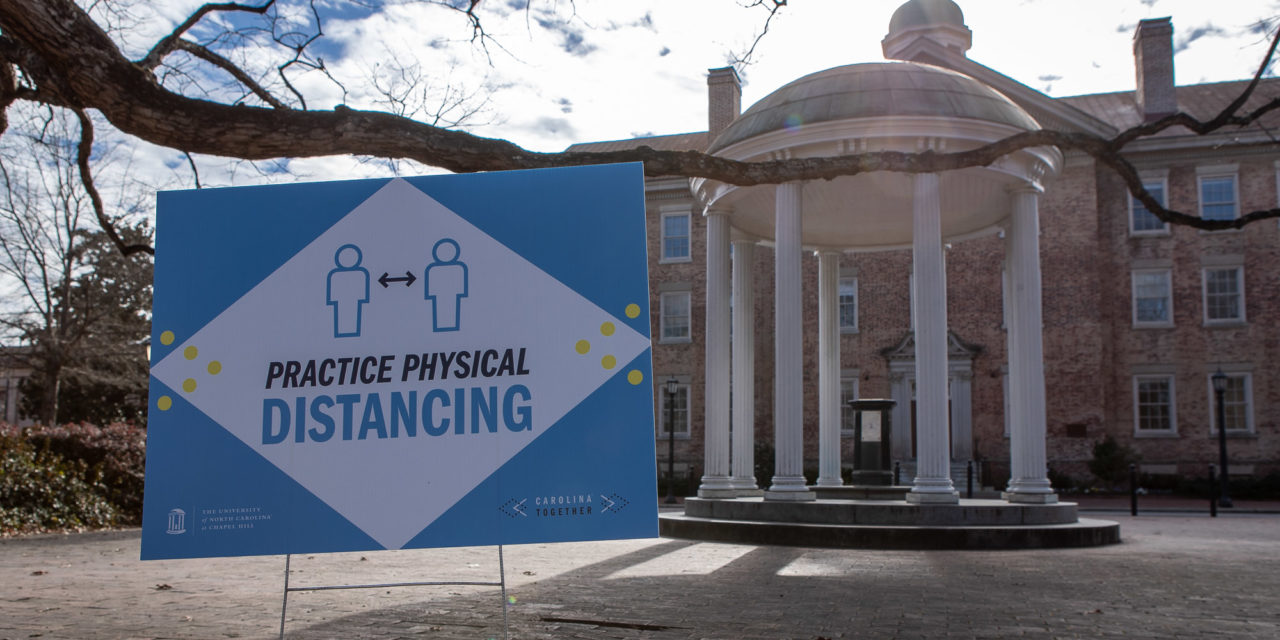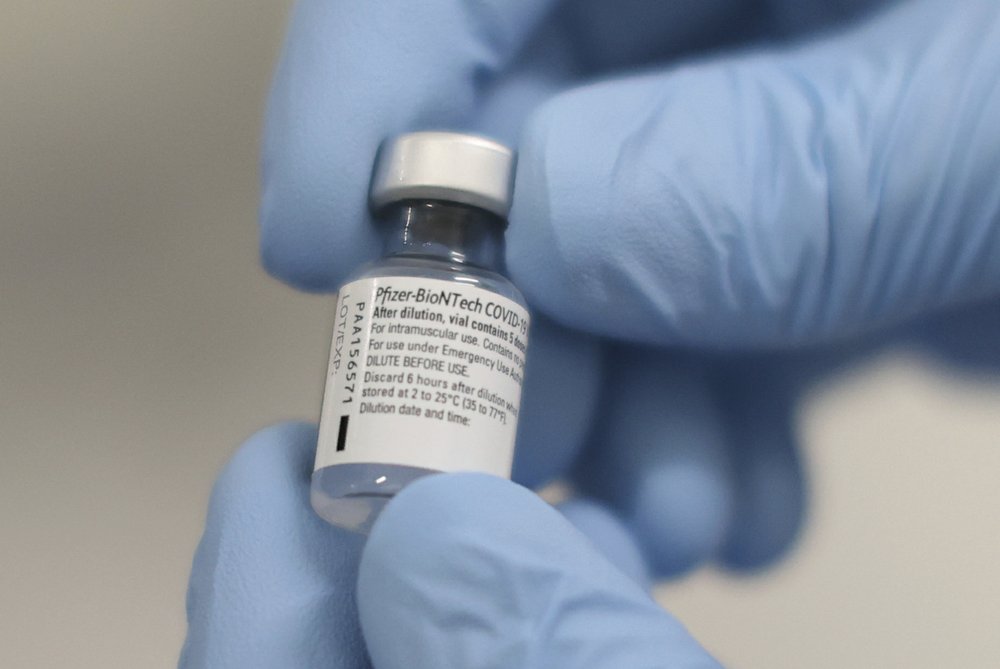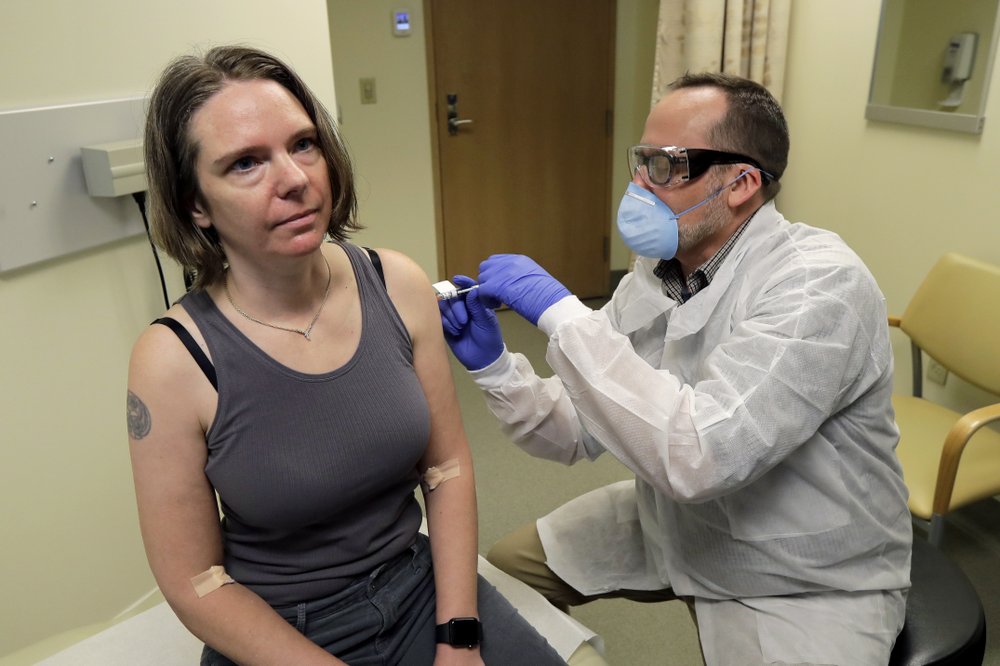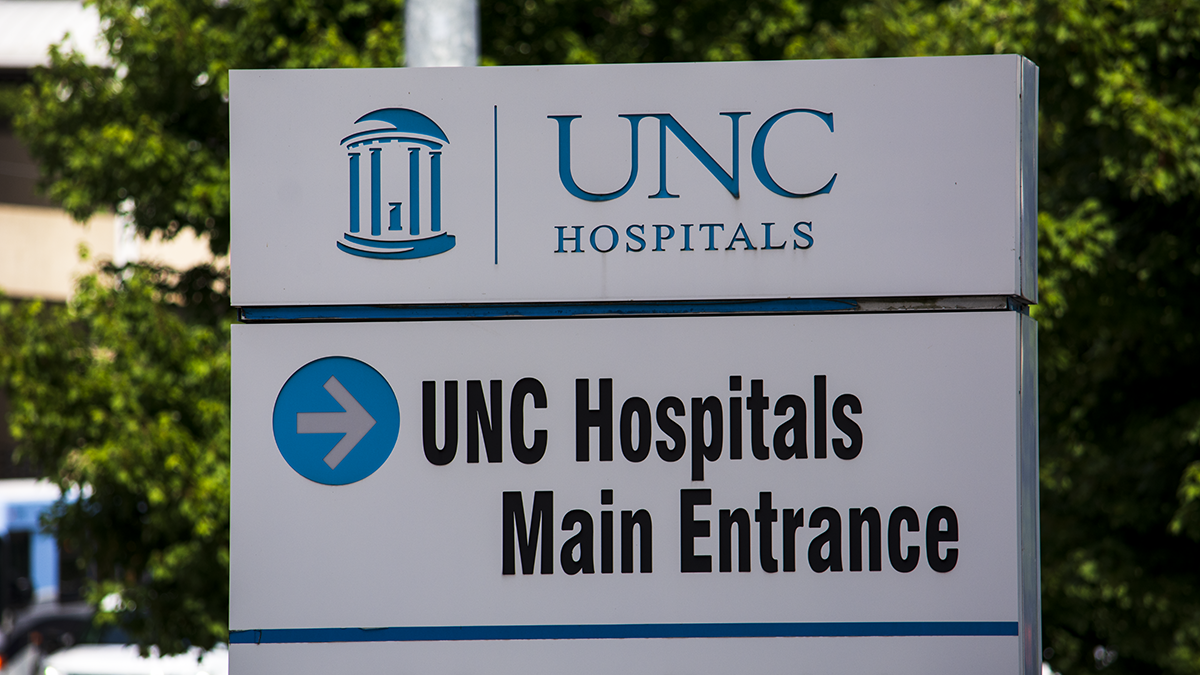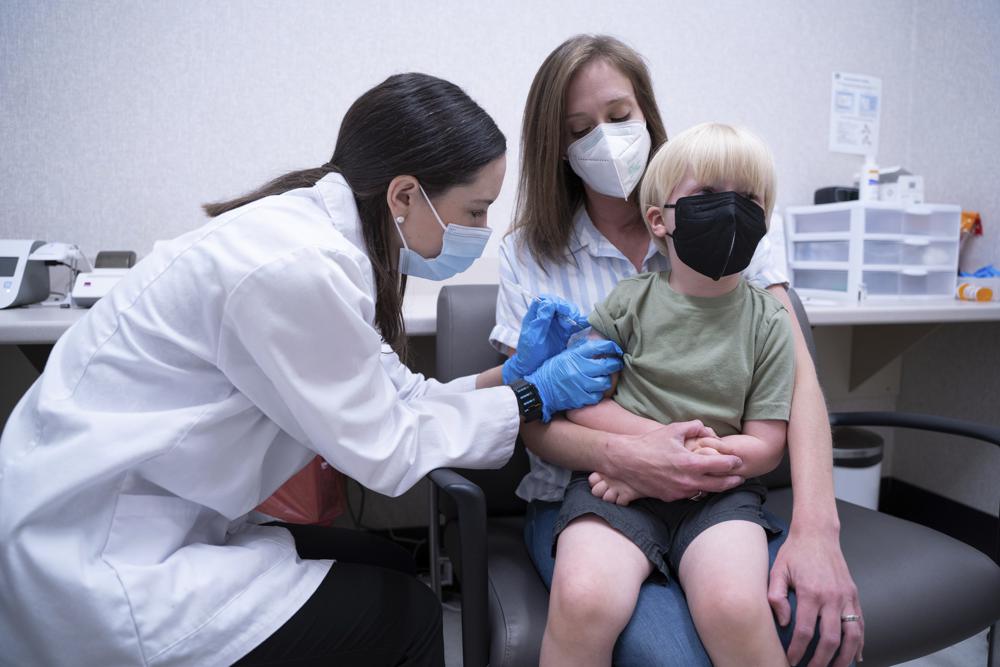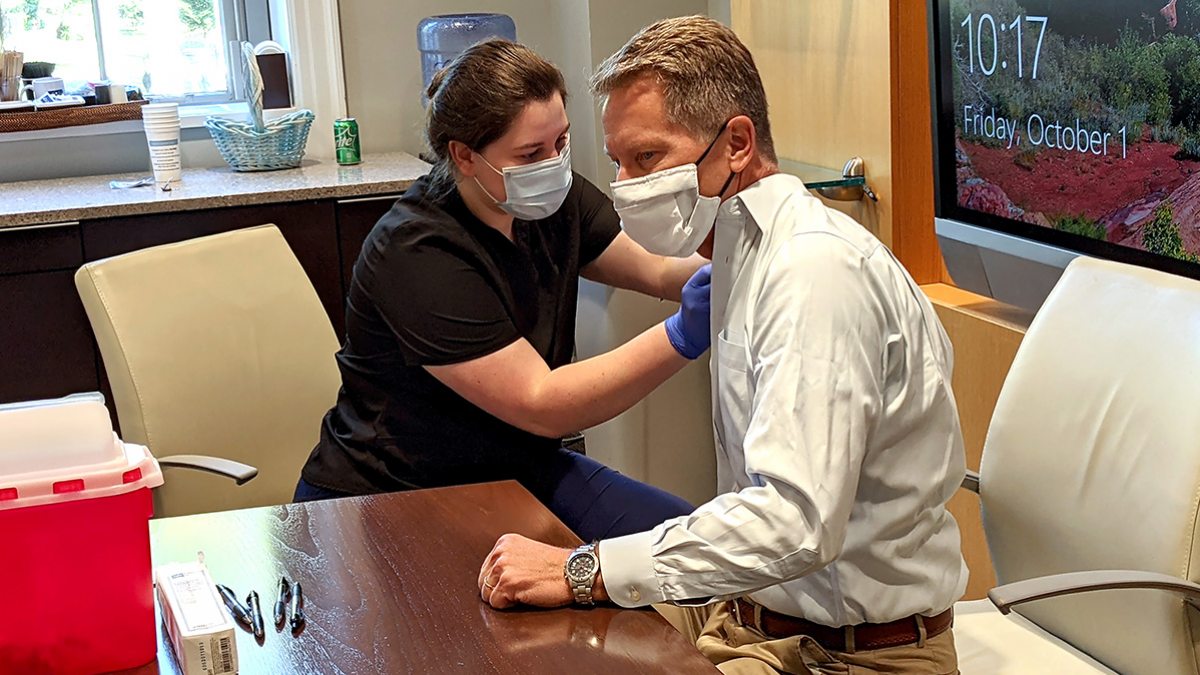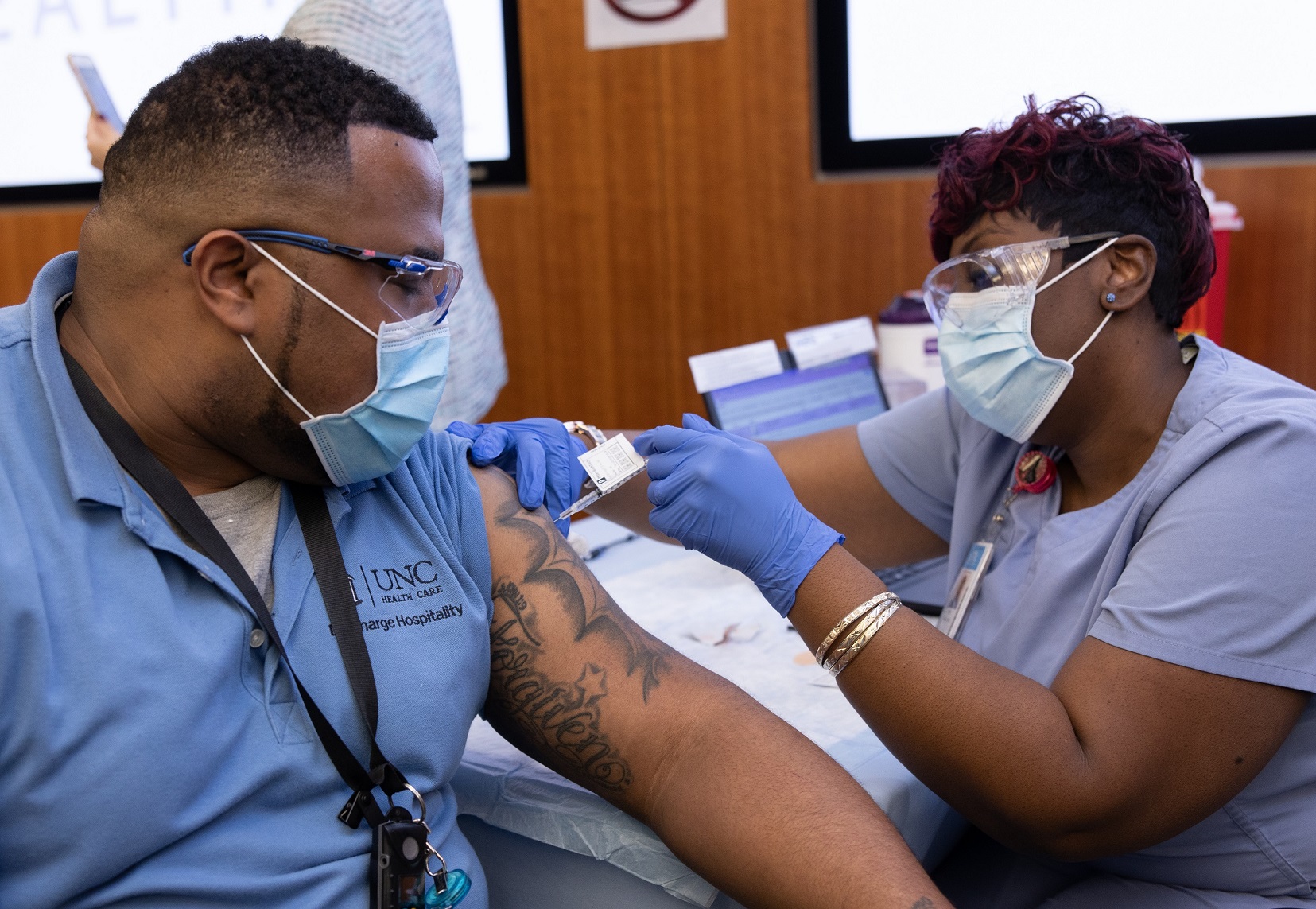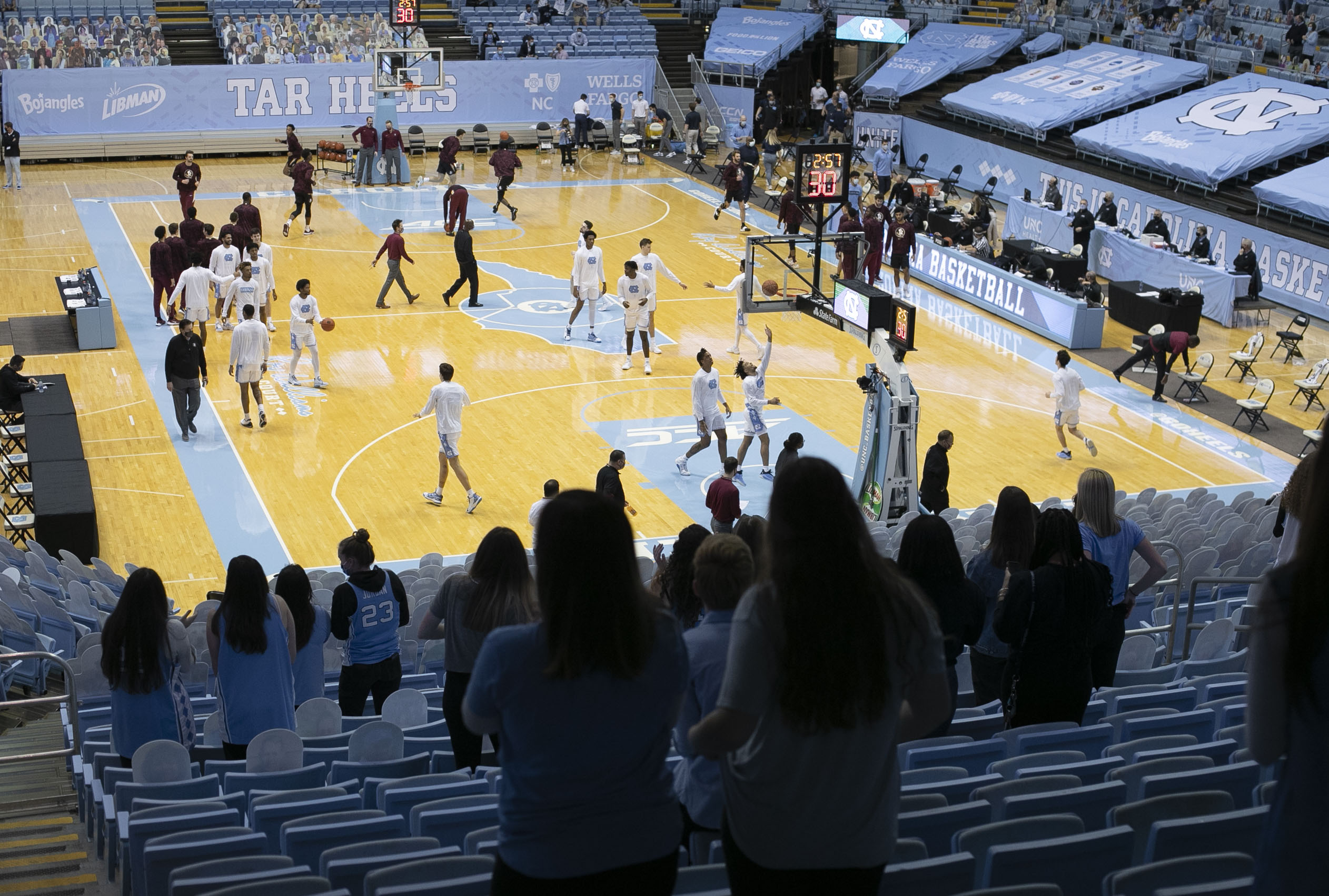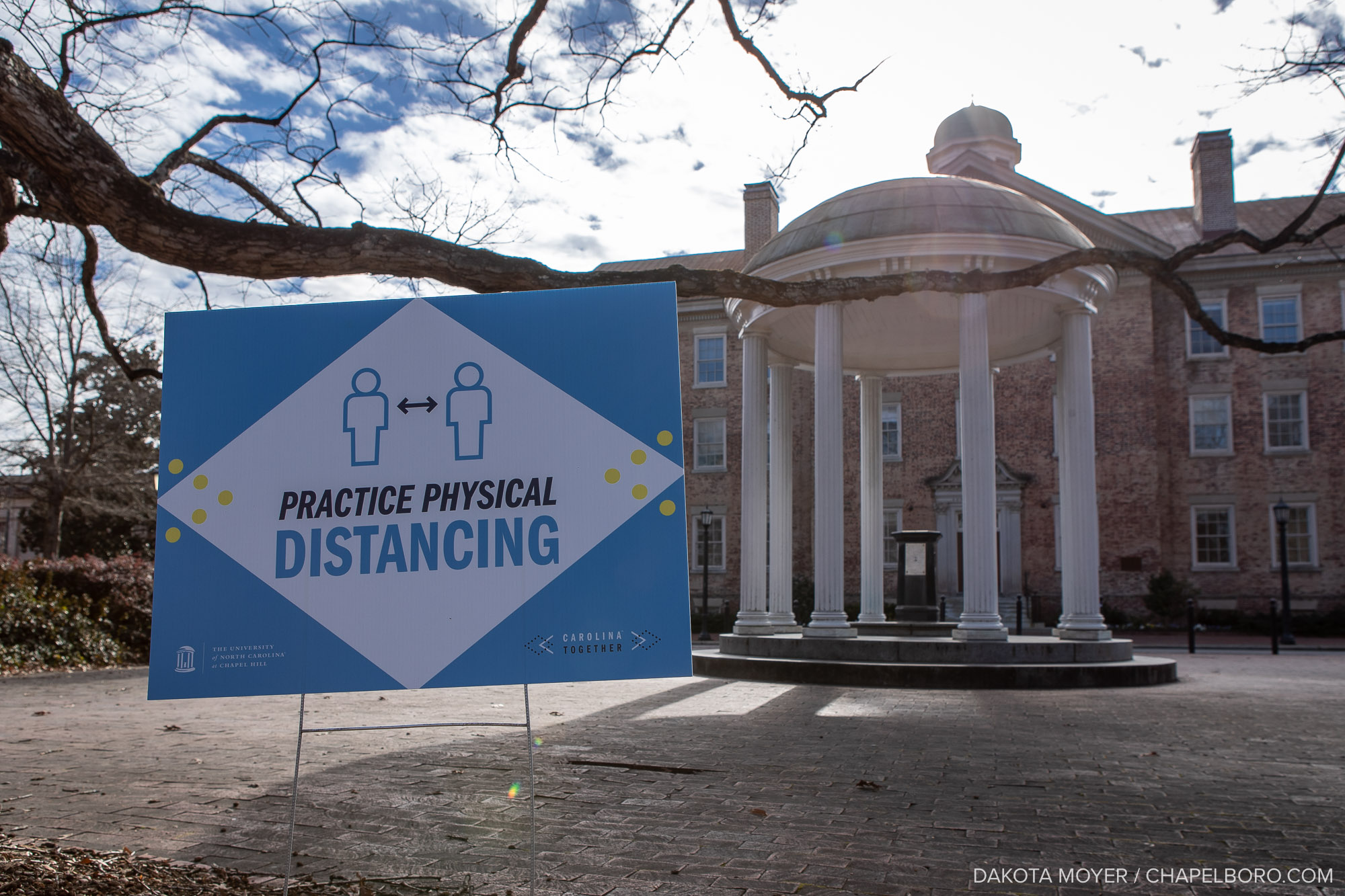A new nationwide study will examine how effective the COVID-19 vaccine is at stopping virus transmission. Study findings will be critical as researchers and health experts assess the need for mask use and social distancing post-vaccination.
Announced at a White House COVID-19 response press briefing last week, the Prevent COVID U study will include 12,000 students at 22 U.S. universities – including UNC.
Dr. Audrey Pettifor is an epidemiologist at the UNC Gillings School of Global Public Health and a principal investigator of the Prevent COVID U study.
She said the study builds on the results of vaccine clinical trials and tests whether a person can become infected after they’ve been vaccinated – and if so, whether the vaccine will stop person-to-person transmission.
“The original studies of the COVID vaccines were set up to look at disease,” Pettifor said. “So, whether you acquired symptomatic disease, not related to whether you acquired any kind of infection including asymptomatic infection. They also weren’t designed to look at whether, if you got low level disease, if you could transmit the virus to other people.”
Pettifor said while vaccinations are proving to prevent serious illness and infection in the general population, researchers still don’t know how much the vaccine will prevent someone from carrying the virus.
“None of the studies to date have looked at transmission,” Pettifor said. “So, we still don’t know if you’re in a household with people who aren’t vaccinated, and you have low level infection, if you could give it to them.”
While Prevent COVID U studies are now underway across the country, Pettifor said it’s important to keep up virus mitigation measures such as wearing a mask and staying six feet apart until these questions are answered.
UNC students ages 18 to 26 are eligible to participate in the study if they have not yet had COVID-19 or received a vaccine.
Half of the students enrolled will be randomly selected to receive the Moderna vaccine at enrollment while the other half will get the vaccine four months later. Throughout the study, participants will complete questionnaires through an electronic diary app, swab their noses daily for COVID-19 infection and provide blood samples periodically.
UNC hopes to enroll 600 students in its trials, however Pettifor said that might be more difficult than initially anticipated as the state expedited its vaccine distribution process – making everyone eligible for a vaccine by April 7.
“I think the big thing, given how quickly vaccines have been rolled out, when we first started planning this study it was projected that college students were not going to be able to access vaccines until later in the summer or the fall,” Pettifor said. “So, for individuals who want the vaccine right away or feel like they need it right away, this probably isn’t a good study for them. It’s really for people who maybe are hesitant or unsure or don’t really care when they get it and want to contribute to science.”
Pettifor said college students are an ideal population to participate in this study because large numbers of COVID-19 cases have been reported on college campuses. Plus, it’s a good chance to let young people get involved in the research.
“I think so often college students have been cast as problem children – partying and not following guidelines – but I think a lot of students, especially at UNC, have done a lot in terms of volunteering and contributing to prevention efforts this semester on campus,” Pettifor said. “I think this is another way for people who feel this is the right thing for them to contribute to a really important study.”
Prevent COVID U opened initial study sites on March 25. Study results are expected to be ready by late August or early September.
To learn more about the study, or to get involved, click here.
Chapelboro.com does not charge subscription fees. You can support local journalism and our mission to serve the community. Contribute today – every single dollar matters.

